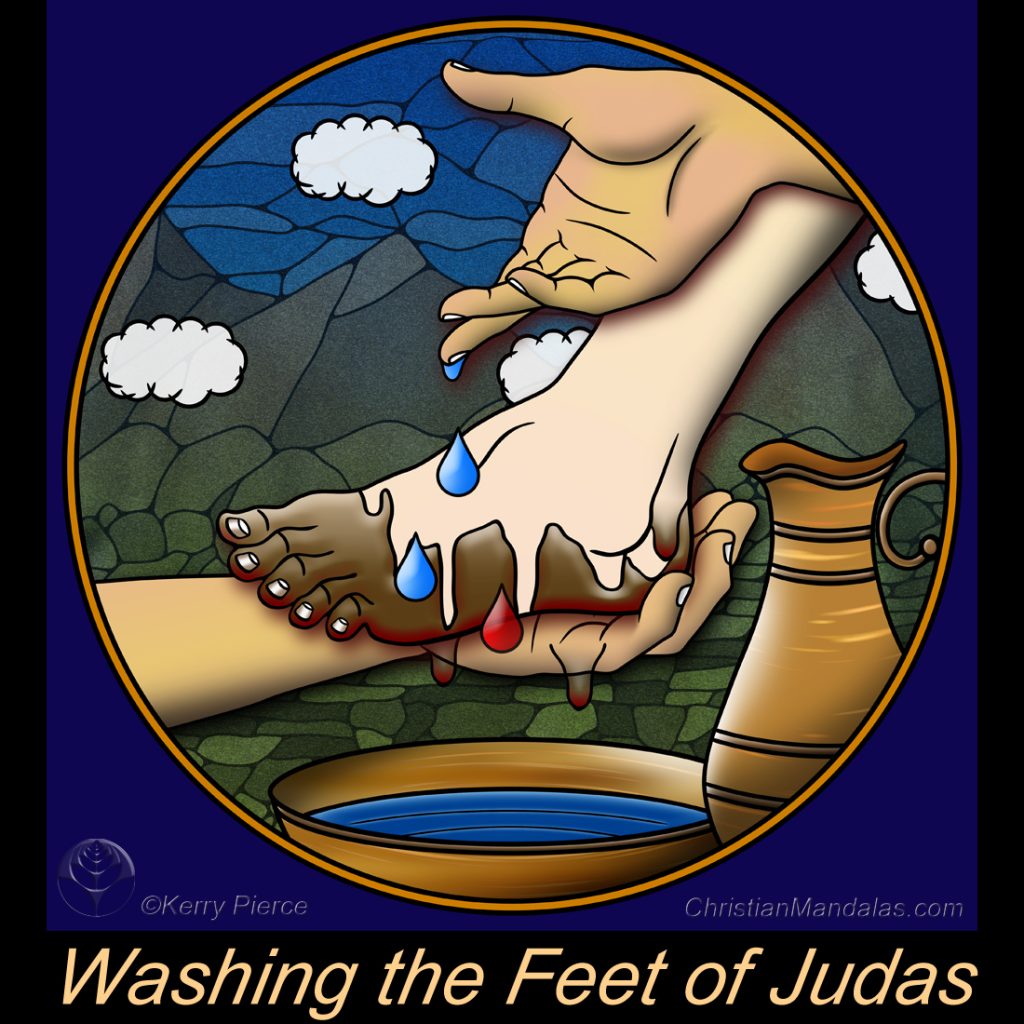
Before the Feast of the Passover…
John 13:4b-5
He [Jesus] laid aside his outer garments, and taking a towel, tied it around his waist. 5 Then he poured water into a basin and began to wash the disciples’ feet and to wipe them with the towel that was wrapped around him.
The Image
The image is a bodycam perspective of Jesus washing the disciples’ feet. Jesus’ left-hand cradles a foot while his right-hand releases water. A layer of dirt runs off the foot.
Notes
Jesus’ act is a deed of humility. The divine Son performs the work of enslaved people.
The Son’s act is also an act of grace. By washing Judas’ feet, Jesus lives his command to love one’s enemy.
Most notable is the symbolism. What Jesus does to the disciples’ feet is an object lesson for what he will do for their souls through his work on the Cross. Guests’ feet were washed to enable them to enter a home. Jesus’ work on the Cross allows us to enter a heavenly home.
Deep Dive
Context. In first-century Palestine, it was common to wear sandals. The roads in Palestine were dirt, turning into mud when it rained. It was typical to go barefoot in the house, so the first duty of the host of a meal was to wash the guests’ feet before their entry. Foot washing before a feast was a task usually performed by slaves, commonly gentile slaves.
Again, the first point of the text is humility and service. As the theologian, Frederick Dale Bruner writes in his commentary on the Gospel of John, “There is no parallel in [existing] ancient literature for a person of superior status voluntarily washing the feet of someone of inferior status.” Here we find God in the flesh performing the work of a slave, giving his disciples an object lesson in humility and Christian service. Note that Jesus is performing this action, knowing he will be put to death shortly.
Secondly, as is common in John’s Gospel, there is a symbolic, spiritual element. A comparison is made between the cleansing of feet to the purification of a person’s soul. Jesus’ washing of feet is symbolic of his humble work on the cross, which cleanses the souls of believers, enabling them to enter into intimate fellowship with our Lord. In summary, foot washing was performed so a guest might enter a home. Jesus’ foot washing, his work on the cross, was performed so that the Spirit might enter and make a home in believers.
At the time, the disciples don’t understand the spiritual significance of Jesus’ action. Likely they were embarrassed. Later, they will understand Jesus’ purpose when the Spirit indwells them.
Finally, we learn from this story. We learn more about Jesus. He lives his message.
In Luke 6:27a, Jesus states, “But I say to you who hear, Love your enemies….” Jesus exhorts his disciples and us to love our neighbors regardless of whether they are friends, relatives, or enemies. In the shadow of the Cross, Jesus washed the disciples’ feet, including Judas’, at the Passover meal. This incident records an extreme example of loving one’s enemy.
